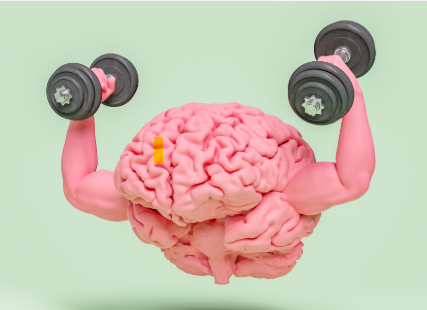In today’s fast-paced, technology-driven world, many of our daily routines can subtly chip away at our mental well-being. Habits we often consider normal or even necessary—such as scrolling through social media or staying up late to catch up on work—can accumulate over time, leading to increased stress, anxiety, or low mood. While these activities may seem harmless on the surface, their long-term effects can significantly impact our emotional and psychological health.
Recognising these harmful habits is the first step towards fostering a healthier mindset. By identifying and addressing the daily practices that undermine mental health, we can make small, intentional changes to improve our overall well-being.
Activities that harm your mental health
Here are six common activities that may be detrimental to your mental health, along with practical suggestions for healthier alternatives.
1. Excessive Social Media Use
Spending hours scrolling through social media platforms can negatively impact mental health. The curated lives displayed online often lead to comparison, fostering feelings of inadequacy or low self-esteem. Studies suggest that prolonged exposure to social media can increase anxiety and depression, particularly among young people. The constant influx of notifications also disrupts focus and promotes a sense of urgency that can feel overwhelming.
Healthier Alternative: Limit social media use to 30 minutes a day and curate your feed to include positive, inspiring content. Consider apps that track and restrict screen time or designate specific times for checking social media.
READ ALSO: How to have fun on campus without spending any money
2. Poor Sleep Habits
Inadequate or irregular sleep is a significant contributor to poor mental health. Staying up late to binge-watch series, scrolling on your phone in bed, or maintaining an inconsistent sleep schedule disrupts the body’s natural circadian rhythm. This can lead to mood swings, irritability, and difficulty managing stress.
Healthier Alternative: Aim for 7-9 hours of quality sleep by establishing a consistent bedtime routine. Avoid screens at least an hour before bed, and create a relaxing bedroom environment with dim lighting and minimal distractions.
ALSO READ: 5 reasons ‘soft life’ isn’t just for women — Men deserve it too
3. Multitasking
Juggling multiple tasks at once—such as answering emails while eating lunch or scrolling through your phone during a conversation—can overload your brain. Multitasking reduces efficiency, increases stress, and impairs cognitive function, leading to mental fatigue and frustration.
Healthier Alternative: Practise single-tasking by focusing on one activity at a time. Use techniques like the Pomodoro method, where you work in focused bursts with short breaks, to boost productivity and reduce mental strain.
ALSO READ: 10 most expensive cars in the world: A look at the ultimate luxury vehicles
4. Overconsumption of News
Keeping up with current events is important, but constant exposure to negative news stories can heighten anxiety and feelings of helplessness. The 24/7 news cycle, often filled with sensationalist headlines, can create a skewed perception of the world, making it seem more threatening than it is.
Healthier Alternative: Set boundaries for news consumption, such as checking updates once or twice a day from reliable sources. Balance this by seeking out positive stories or engaging in activities that uplift your mood.
ALSO READ: 5 signs of true intimacy in a Ghanaian relationship
5. Sedentary Lifestyle
Spending long hours sitting—whether at a desk, on the sofa, or in front of a screen—can harm both physical and mental health. Physical inactivity is linked to increased risks of stress as it reduces the release of endorphins, the body’s natural mood enhancers.
Healthier Alternative: Incorporate regular movement into your day, such as a brisk walk, stretching, or a short workout. Even standing up every hour or doing a quick yoga session can improve mood and energy levels.
READ ALSO: Here are 5 Ghanaian celebrity-owned businesses making waves in the industry
6. Negative Self-Talk
Many people engage in negative self-talk without realising it, such as criticising themselves for mistakes or dwelling on perceived failures. This internal dialogue can erode self-confidence and contribute to anxiety, depression, or low self-worth over time.
Healthier Alternative: Practise self-compassion by challenging negative thoughts and replacing them with kinder, more balanced perspectives. Journaling or speaking with a trusted friend or therapist can help reframe negative self-talk.
Small changes to daily routines can significantly improve mental well-being. By recognising and addressing these harmful habits, you can foster a healthier mindset and build resilience against life’s challenges. Prioritise self-care, set boundaries, and seek professional support if needed to maintain your mental health.
Discover more from Ghana Scoop
Subscribe to get the latest posts sent to your email.

